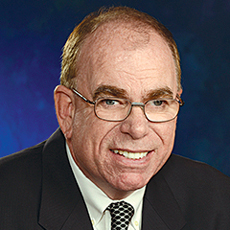
We are hearing much these days about the government’s plan to adjust Medicare payments. But not much is being said about a helpful resource that could spell the difference between success and failure.
For those of you just returning from a years-long journey to Mars, Uncle Sam is about to (once again) revamp payment incentives and expectations. The name of this shiny new toy is the Patient-Driven Payment Model, or PDPM.
This latest approach is intended to wean the industry of its growing rehab addiction. It proposes to do so in part by removing incentives that encourage operators to lard on therapy hours and reach for the highest-possible payment categories.
The new phrase that pays is “episode of care.” That’s another way of saying services under the new system should be better targeted and more appropriate. At least, that’s what the folks at the Centers for Medicare & Medicaid Services are insisting.
The early voting shows operators generally welcome the shift, largely because it will offer more reasons to care for medically complex residents. As many operators were already moving upstream as quickly as they could paddle, PDPM implementation should have the effect of encouraging a migration that has already begun.
Which brings us back to that key resource that many operators are overlooking. And by that, I mean consultant pharmacists.
Why consultant pharmacists? Because more medically complex residents are going to need medicine in line with their advanced conditions. And there is little doubt that consultant pharmacists are the Masters of the Universe when it comes to rationalizing therapy for such customers.
During a recent McKnight’s webcast, Omnicare’s Nancy Losben addressed some of the ways pharmacists might be major difference makers under PDPM.
“Pharmacists may need to help you optimize drug therapy early in a resident’s stay — such as by providing admission medications regimen review to help you identify adverse effects and medication errors upon transition — to assure the resident has a successful stay,” she said.
Losben added that a pharmacist can also assist in establishing a robust disease-management program. To offer one example: one that aims to better control residents’ diabetes and reduce the number of staff-delivered insulin doses.
Pharmacists are also in a position to recognize generic or emerging medications, to point out alternative therapies and to help find efficiencies for residents with chronic diseases, she noted. In other cases, pharmacists might suggest adding new services.
To see the full webinar, please click here.
Also, please note that we will be releasing an e-book in the coming weeks that highlights these and other ways consultant pharmacists can help your organization thrive under PDPM.
Will the new payment system be a major disrupter? Absolutely. But many operators may pleasantly discover that this new approach is just what the doctor ordered.
John O’Connor is McKnight’s Editorial Director.




